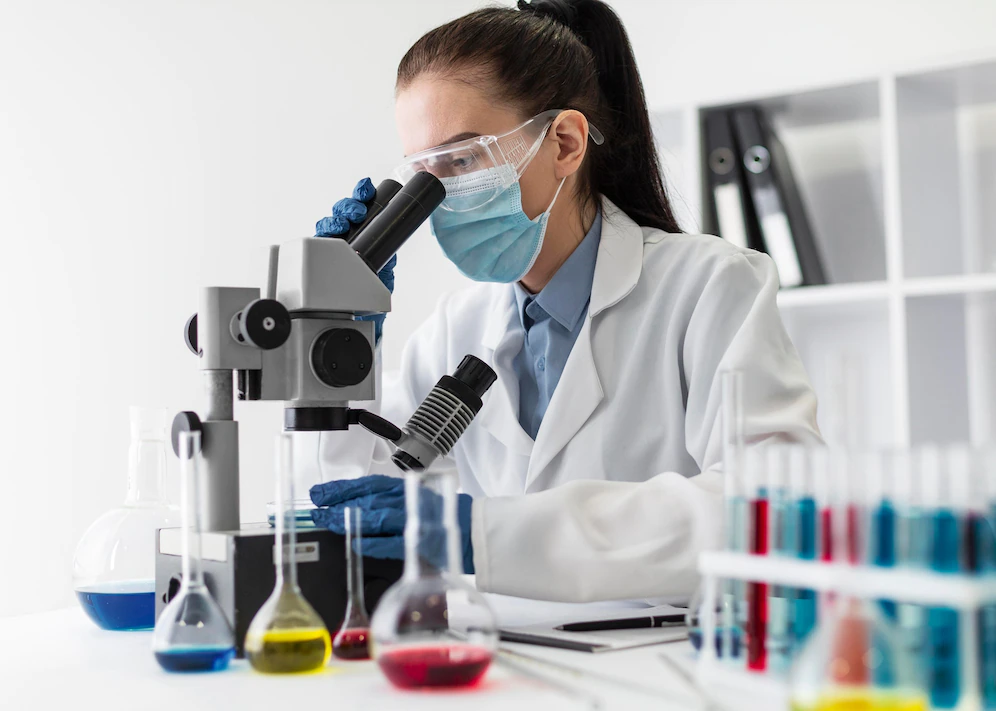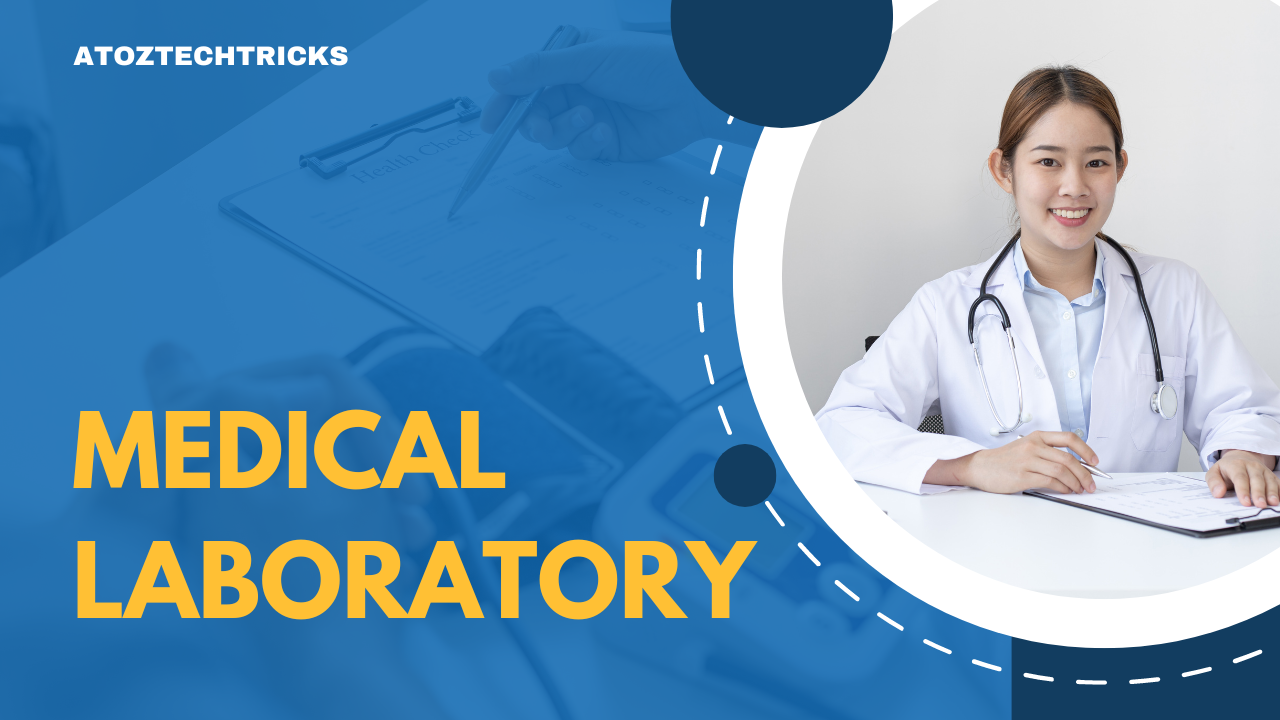Explore Exciting and Essential Medical Laboratory Careers Today
The medical laboratory field is a cornerstone of modern healthcare, playing a crucial role in diagnosing diseases, guiding treatment decisions, and advancing medical research. With the ever-evolving landscape of medical science and technology, careers in medical laboratories have become more dynamic and varied. This article will explore the exciting and essential medical laboratory careers available today, highlighting their significance, educational requirements, and prospects.
1. Introduction to Medical Laboratory Careers
Medical laboratory careers encompass a range of professions focused on analyzing biological samples, conducting tests, and interpreting results. These roles are integral to patient care, research, and the overall functioning of healthcare systems. From clinical laboratory technologists to biomedical scientists, the field offers diverse opportunities for individuals passionate about science and healthcare.
2. Clinical Laboratory Technologist (Medical Technologist)
Role and Responsibilities: Clinical laboratory technologists, also known as medical technologists, are responsible for performing a wide range of diagnostic tests on blood, urine, and other bodily fluids. They use advanced equipment and technologies to identify pathogens, measure biomarkers, and assess organ function. Their work helps physicians diagnose conditions, monitor patient health, and make informed treatment decisions.

Educational Requirements: To become a clinical laboratory technologist, one typically needs a bachelor’s degree in medical technology, clinical laboratory science, or a related field. Certification from a recognized board, such as the American Society for Clinical Pathology (ASCP), is often required. Clinical experience through internships or clinical rotations is also essential.
Future Prospects: The demand for clinical laboratory technologists is expected to grow due to an ageing population, increasing prevalence of chronic diseases, and advancements in diagnostic technology. This career offers opportunities for specialization in areas such as microbiology, haematology, and immunology.
3. Clinical Laboratory Technician
Role and Responsibilities: Clinical laboratory technicians, or medical laboratory technicians, support clinical laboratory technologists by performing routine tests and procedures. They prepare specimens, operate laboratory equipment, and analyze test results under the supervision of technologists. Their work ensures the accuracy and reliability of test results.
Educational Requirements: A two-year associate degree in clinical laboratory technology or a related field is typically required for this role. Certification from a professional organization, such as the American Society for Clinical Pathology (ASCP), may be necessary. Clinical experience is also important for skill development.
Future Prospects: As the healthcare industry continues to expand, the need for clinical laboratory technicians is expected to grow. Opportunities exist for advancement to higher-level positions, such as laboratory technologist or specialist roles.
4. Biomedical Scientist
Role and Responsibilities: Biomedical scientists research to understand diseases and develop new treatments. They work in research laboratories, studying disease mechanisms, analyzing biological data, and testing new drugs or therapies. Their work contributes to advancing medical knowledge and improving patient outcomes.
Educational Requirements: A bachelor’s degree in biomedical science, biology, or a related field is required. Many biomedical scientists pursue advanced degrees (master’s or doctoral) to specialize in areas such as molecular biology, pharmacology, or genetics. Research experience and publications are often essential for career advancement.
Future Prospects: Biomedical science is a rapidly evolving field with opportunities in academic research, pharmaceutical companies, and government agencies. The growing focus on personalized medicine and genomics provides exciting prospects for biomedical scientists.

5. Cytotechnologist
Role and Responsibilities: Cytotechnologists examine cell samples under a microscope to detect abnormalities, including cancerous cells. They play a critical role in diagnosing cancer, infections, and other diseases by analyzing cytological specimens. Their work aids in early detection and accurate diagnosis, which is crucial for effective treatment.
Educational Requirements: A bachelor’s degree in cytotechnology or a related field is required. Certification from the American Society of Cytopathology (ASC) or a similar organization is typically needed. Clinical experience and hands-on training are essential for developing proficiency in cytological techniques.
Future Prospects: The demand for cytotechnologists is influenced by the need for early disease detection and advancements in diagnostic technologies. This field offers opportunities for specialization and advancement into roles such as cytopathology supervisor or educator.
6. Genetic Counselor
Role and Responsibilities: Genetic counsellors provide information and support to individuals and families regarding genetic conditions and inherited disorders. They interpret genetic test results, assess risk factors, and offer guidance on management and treatment options. Their role is crucial in helping patients understand their genetic risks and make informed decisions.
Educational Requirements: A master’s degree in genetic counselling or a related field is required. Certification from the American Board of Genetic Counseling (ABGC) or a similar organization is often necessary. Strong communication skills and a background in genetics are important for success in this role.
Future Prospects: With advances in genetic testing and personalized medicine, the demand for genetic counsellors is expected to increase. Opportunities exist in clinical settings, research, and public health.
Discover Exciting Nursing Careers: From Registered Nurse to Nurse Anesthetist
7. Microbiologist
Role and Responsibilities: Microbiologists study microorganisms, including bacteria, viruses, fungi, and parasites. They analyze microbial samples, conduct experiments, and investigate microbial interactions with hosts. Their work is essential in diagnosing infectious diseases, developing vaccines, and ensuring food and environmental safety.
Educational Requirements: A bachelor’s degree in microbiology, biology, or a related field is required. Many microbiologists pursue advanced degrees (master’s or doctoral) to specialize in areas such as clinical microbiology, environmental microbiology, or virology. Laboratory experience is crucial for skill development.
Future Prospects: The demand for microbiologists is driven by the need for disease research, public health initiatives, and biotechnological advancements. Opportunities exist in healthcare, research institutions, and government agencies.
8. Immunologist
Role and Responsibilities: Immunologists study the immune system and its responses to infections, diseases, and vaccines. They research to understand immune system function, develop new immunotherapies, and diagnose immune-related disorders. Their work contributes to advancements in treating allergies, autoimmune diseases, and cancer.
Educational Requirements: A bachelor’s degree in immunology, biology, or a related field is required. Many immunologists pursue advanced degrees (master’s or doctoral) to specialize in immunology research or clinical practice. Research experience and a strong understanding of immunological techniques are essential.
Future Prospects: The field of immunology is rapidly evolving with advancements in immunotherapy and vaccine development. The demand for immunologists is expected to grow in research, clinical settings, and biotechnology companies.
9. Forensic Scientist
Role and Responsibilities: Forensic scientists analyze evidence from crime scenes to assist in criminal investigations. They work with biological samples, such as blood or hair, and use techniques like DNA analysis to identify suspects and provide evidence in legal cases. Their work is crucial in the justice system.
Educational Requirements: A bachelor’s degree in forensic science, biology, or a related field is required. Advanced degrees (master’s or doctoral) may be beneficial for career advancement. Certification from professional organizations, such as the American Board of Criminalistics (ABC), may also be required.
Future Prospects: The demand for forensic scientists is driven by the need for accurate crime scene analysis and advancements in forensic technology. Opportunities exist in law enforcement agencies, forensic laboratories, and consulting firms.
10. Laboratory Manager
Role and Responsibilities: Laboratory managers oversee the daily operations of medical and research laboratories. They manage staff, ensure compliance with regulations, and oversee quality control and equipment maintenance. Their role is crucial in ensuring the efficiency and accuracy of laboratory operations.
Educational Requirements: A bachelor’s degree in clinical laboratory science, medical technology, or a related field is typically required. Advanced degrees or certifications in laboratory management or administration can enhance career prospects. Experience in laboratory operations and management is essential.
Future Prospects: The demand for laboratory managers is influenced by the growth of healthcare facilities and research institutions. Opportunities exist for advancement into higher-level administrative or executive roles.
The Future of Medical Laboratory Careers
Medical laboratory careers are vital to the advancement of healthcare and medical science. With the rapid pace of technological advancements and the increasing complexity of medical diagnostics, professionals in this field are more important than ever. From clinical laboratory technologists to forensic scientists, each role contributes to improving patient care, advancing research, and ensuring public health.
As the healthcare landscape continues to evolve, new opportunities and specializations will emerge. For individuals passionate about science and healthcare, a career in medical laboratories offers a rewarding and impactful path. Whether working directly with patients, conducting groundbreaking research, or managing laboratory operations, professionals in this field play a crucial role in shaping the future of medicine.
The ongoing demand for skilled medical laboratory professionals, coupled with advancements in technology and research, ensures a bright future for those entering this dynamic and essential field.




Post Comment